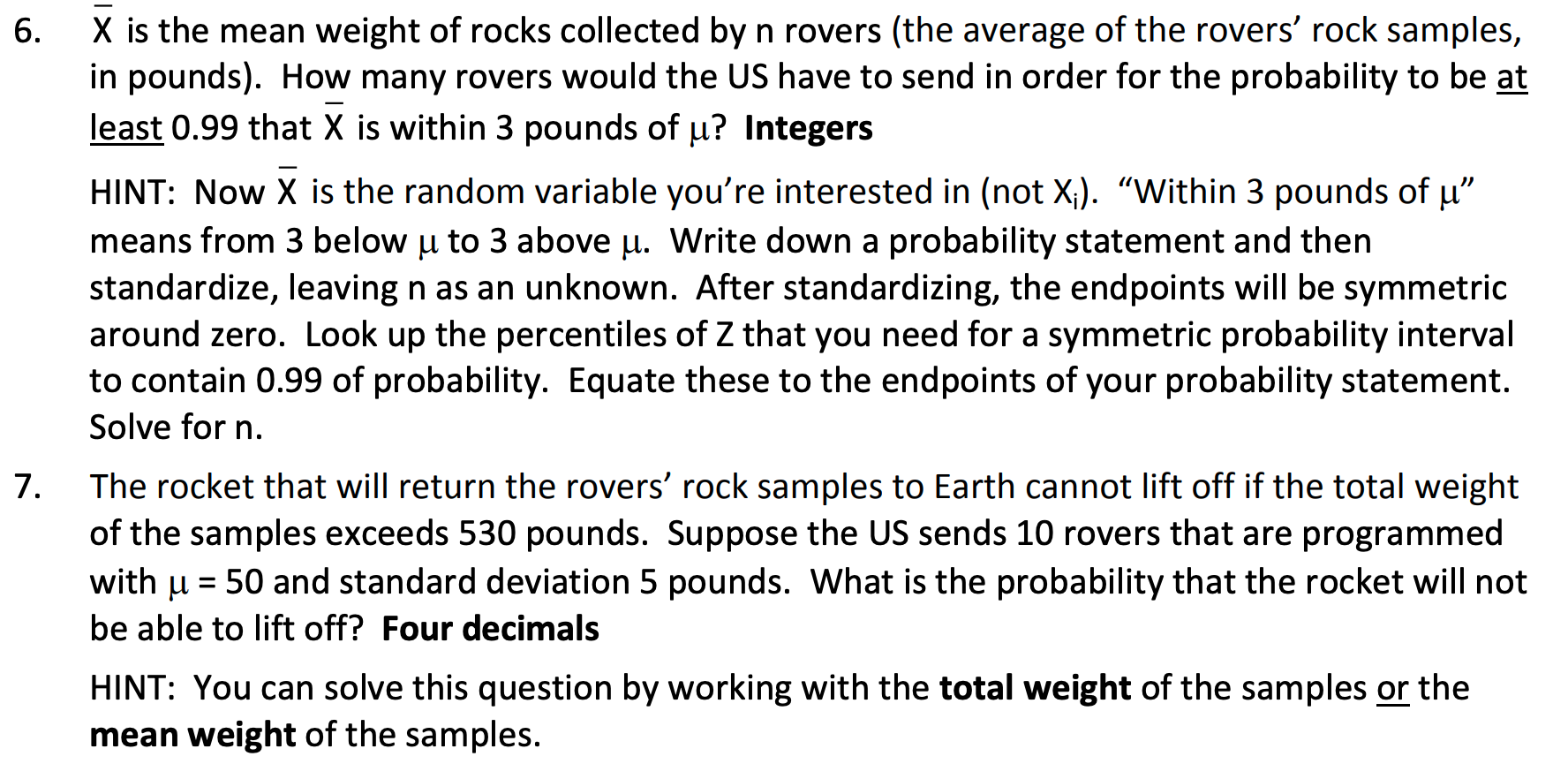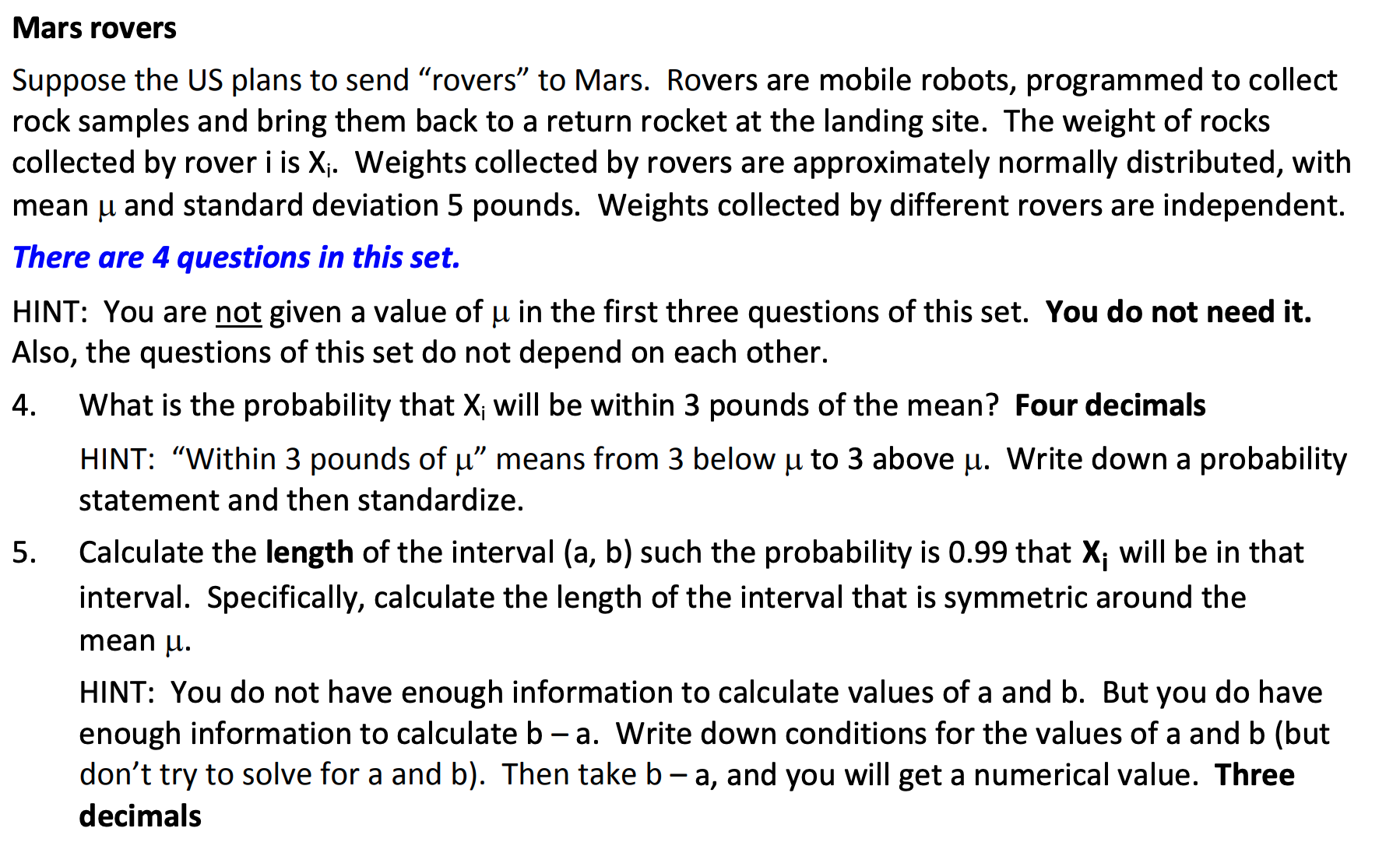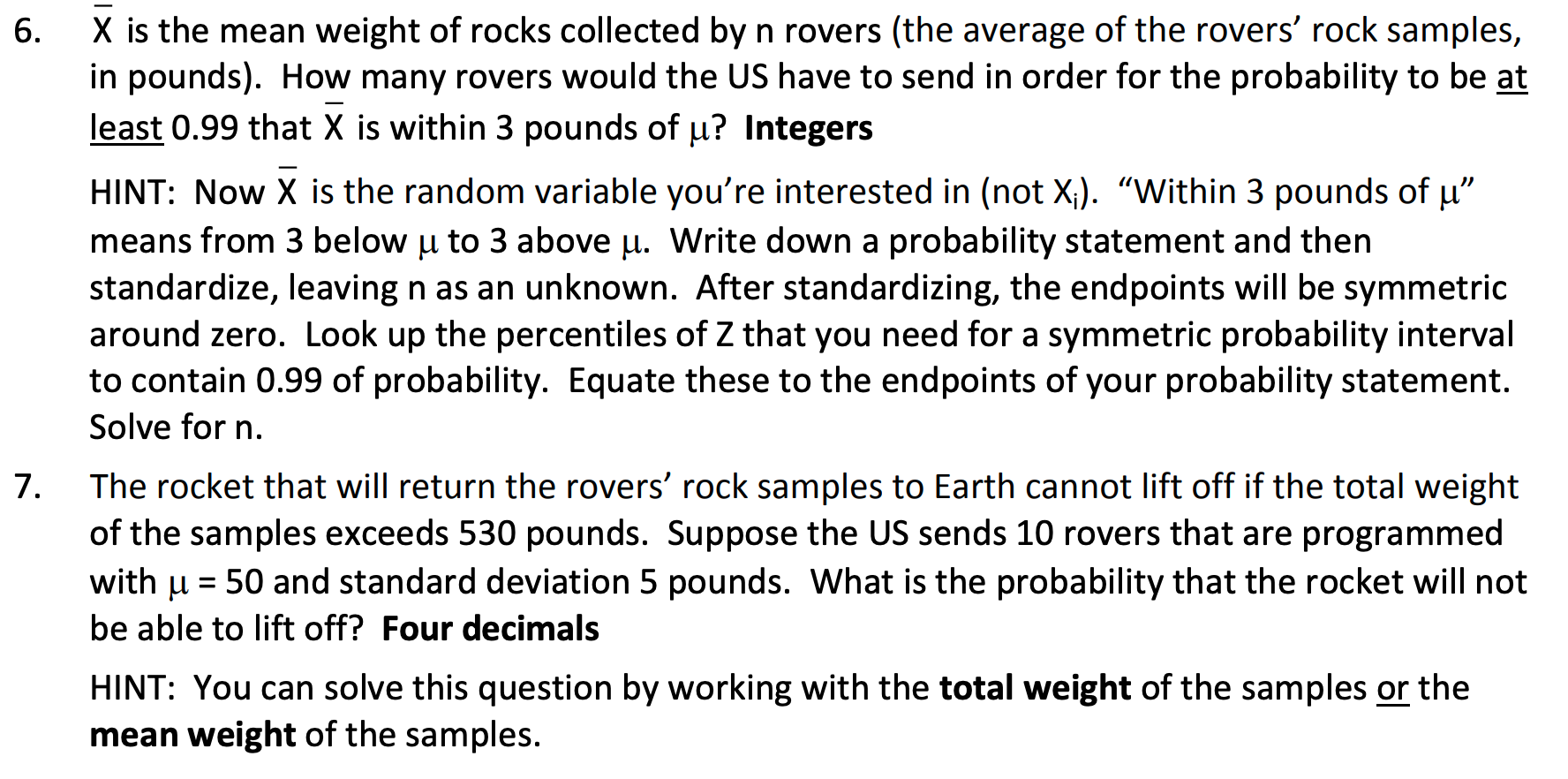
I need help with 4-7 please
Mars rovers Suppose the US plans to send "rovers" to Mars. Rovers are mobile robots, programmed to collect rock samples and bring them back to a return rocket at the landing site. The weight of rocks collected by rover i is Xi. Weights collected by rovers are approximately normally distributed, with mean u and standard deviation 5 pounds. Weights collected by different rovers are independent. There are 4 questions in this set. HINT: You are not given a value of u in the first three questions of this set. You do not need it. Also, the questions of this set do not depend on each other. 4. What is the probability that X; will be within 3 pounds of the mean? Four decimals HINT: "Within 3 pounds of u" means from 3 below u to 3 above u. Write down a probability statement and then standardize. 5. Calculate the length of the interval (a, b) such the probability is 0.99 that X; will be in that interval. Specifically, calculate the length of the interval that is symmetric around the mean u. HINT: You do not have enough information to calculate values of a and b. But you do have enough information to calculate b - a. Write down conditions for the values of a and b (but don't try to solve for a and b). Then take b - a, and you will get a numerical value. Three decimals6. )_( is the mean weight of rocks collected by n rovers (the average of the rovers' rock samples, in pounds). How many rovers would the US have to send in order for the probability to be a_t least 0.99 that X is within 3 pounds of u? Integers HINT: Now )_( is the random variable you're interested in (not Xi). \"Within 3 pounds of u\" means from 3 below u to 3 above u. Write down a probability statement and then standardize, leaving n as an unknown. After standardizing, the endpoints will be symmetric around zero. Look up the percentiles of 2 that you need for a symmetric probability interval to contain 0.99 of probability. Equate these to the endpoints of your probability statement. Solve for n. The rocket that will return the rovers' rock samples to Earth cannot lift off if the total weight of the samples exceeds 530 pounds. Suppose the US sends 10 rovers that are programmed with u = 50 and standard deviation 5 pounds. What is the probability that the rocket will not be able to lift off? Four decimals HINT: You can solve this question by working with the total weight of the samples g the mean weight of the samples









